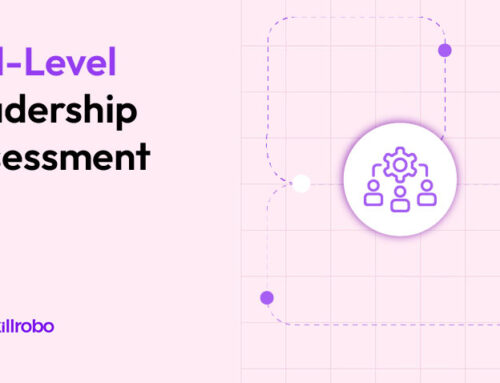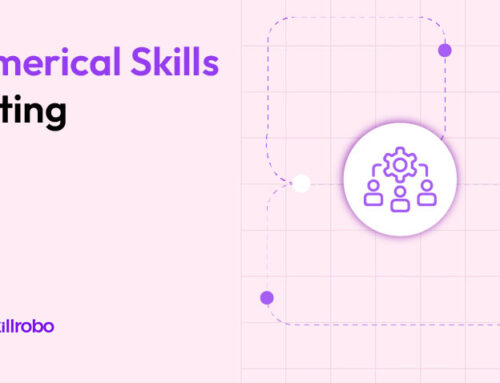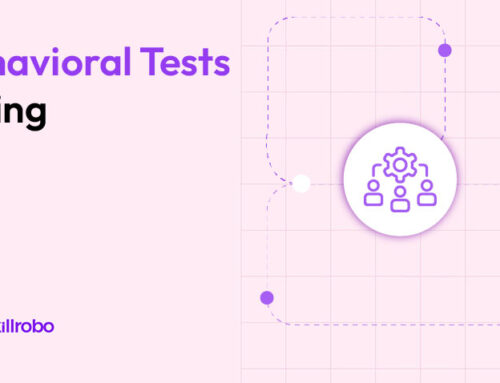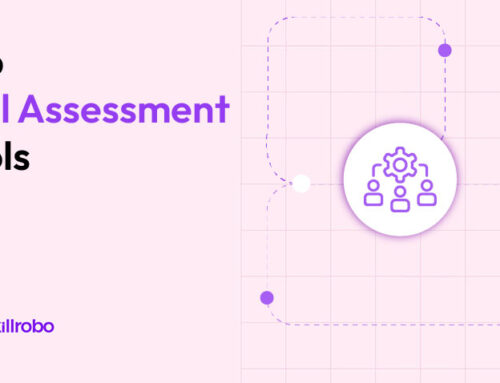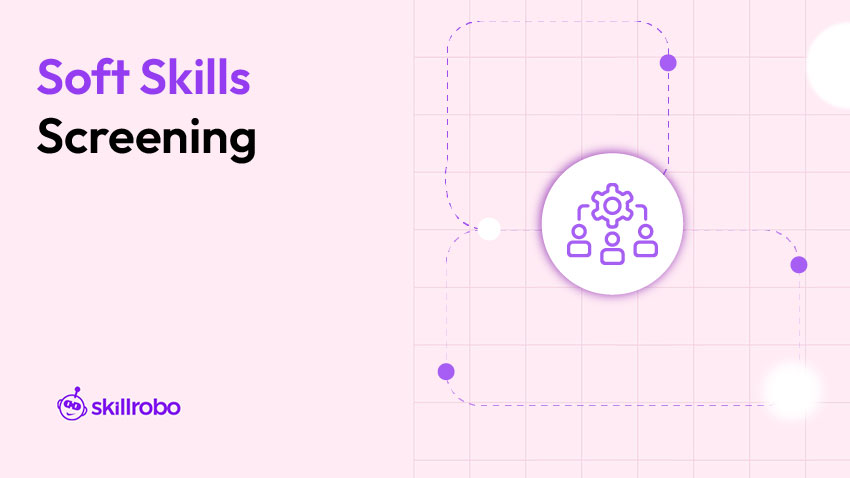
Key Takeaways
- Soft skills now hold equal importance to technical skills in determining workplace success and retention.
- Integrated assessments improve hiring accuracy by aligning behavioral traits with real role demands.
- Combining skill and soft skill tests reduces bias and increases cultural alignment in hiring.
- Structured data from assessments helps predict performance and supports long-term talent development.
The New Hiring Imperative: Balancing Hard Skills with Human Skills
Hiring the right candidate isn’t just about ticking off technical qualifications. While hard skills may get a candidate through the door, it’s the soft skills—like communication, emotional intelligence, adaptability, and teamwork—that determine whether they’ll thrive in your workplace. In a competitive hiring landscape, companies are realising that technical aptitude alone doesn’t guarantee cultural fit or long-term success. That’s why pre-employment screening is evolving to include integrated soft skills assessments, providing a more complete picture of a candidate’s potential.
This blog explores how combining technical evaluations with soft skill insights transforms talent acquisition and improves workforce quality.
Why Soft Skills Are Non-Negotiable
Imagine this: a technically brilliant candidate is hired, but within a month, collaboration issues, communication breakdowns, and team frustration start bubbling up. The problem? A lack of soft skills.
More than 85% of job success comes from soft skills, not technical expertise. Attributes like communication, adaptability, empathy, and collaboration are what make candidates thrive in real-world settings.
That’s why modern recruiters are shifting from skills-only hiring to integrated assessments that uncover both capabilities and character. Soft skills impact how people manage conflict, respond to feedback, lead projects, and engage with customers, making them essential for long-term success in any role.
Traditional vs. Integrated Screening
For years, recruitment strategies have leaned heavily on resumes, interviews, and technical assessments to determine candidate suitability. While these methods help verify experience and hard skills, they often overlook one critical dimension: behavior. Soft skills like communication, emotional intelligence, and adaptability are harder to measure, but they’re just as essential to long-term success. That’s where integrated screening enters the picture, bringing together technical evaluation and behavioral insight in one unified process.
Here’s a deeper look at how traditional hiring stacks up against integrated screening models—and why companies are making the switch:
| Method | Focus Area | Drawback | What Integration Adds |
|---|---|---|---|
| Resume review | Experience & Education | Misses behavioral tendencies | A fuller view of candidate potential |
| Technical test only | Hard skill verification | Ignores interpersonal/team dynamics | Balances task fit with team fit |
| Integrated assessments | Skills + soft skills + behavior | Slightly more setup required | Stronger performance prediction and cultural alignment |
Integrated assessments not only validate what a candidate can do, but also how they’ll collaborate, lead, and adapt, making them a game-changer for modern hiring teams.
Which Soft Skills Should You Measure?
Not all roles demand the same personality traits, but there’s a clear pattern across high performers: certain soft skills repeatedly drive long-term success, regardless of industry. Here’s what recruiters should prioritize in pre-employment assessments:
1. Communication
A candidate’s ability to clearly articulate ideas, actively listen, and adapt their tone is key in both internal collaboration and customer-facing roles. Use communication skills assessment tools that simulate real-time dialogues or present common workplace misunderstandings to gauge clarity, persuasion, and active listening.
2. Adaptability
How well someone handles change often determines their fit in fast-paced, evolving workplaces. Present test-takers with unexpected scenarios, such as a sudden process change or last-minute client feedback, and observe their flexibility. To make this measurable, platforms like Skillrobo offer behavioral assessment modules that track response patterns under pressure.
3. Team Collaboration
Soft skills aren’t just about one-on-one interactions. In cross-functional teams, emotional intelligence matters. Candidates should demonstrate conflict resolution skills, empathy, and supportiveness. You can explore these traits using psychometric assessments that offer insights into teamwork styles, emotional regulation, and peer adaptability.
4. Problem-Solving Attitude
Beyond IQ, attitude defines how a person tackles problems. Do they look for solutions or blame external circumstances? Pre-employment tests that evaluate cognitive abilities can help reveal a candidate’s thinking style—whether reactive, proactive, or analytical under stress.
Real Scenario: Skills Meet Culture
Let’s say you’re hiring for a client-facing customer support role, a position that demands more than just product knowledge. Two candidates will take your assessment:
- Candidate A: Scores high in technical knowledge but falters on soft traits like empathy and patience during a scenario-based simulation.
- Candidate B: Moderate technical score but consistently ranks high on behavioral markers—resilience, emotional intelligence, and interpersonal tact.
While Candidate A might excel on paper, Candidate B is far more likely to de-escalate tense situations and build customer trust in the long run. This is where integrated assessment shines—it helps you hire for culture fit and capability, not just for credentials. You’re not just hiring for today’s job; you’re building tomorrow’s team.
How to Implement Integrated Screening in Hiring
Incorporating integrated screening into your hiring process doesn’t require a complete overhaul—just a strategic approach to how assessments are planned, mapped to job roles, and embedded early in the hiring funnel. With the right tools and structure, even small changes—like adding a soft skills prompt alongside technical tasks—can dramatically improve how you evaluate culture fit, communication, and long-term success potential.
1. Map Assessments to Real Tasks
Design assessments that mirror day-to-day responsibilities. Instead of abstract logic puzzles, use real-world prompts—like handling a client objection or prioritizing conflicting deadlines. Platforms offering pre-employment skill assessment strategies can help structure this effectively.
2. Limit Test Time
Candidate experience matters. Keep combined assessments (technical + soft skills) within a 30–40-minute window. Long tests can lead to fatigue, dropout, or inaccurate reflection of abilities.
3. Use Assessments Early in the Funnel
Rather than saving evaluations for the final round, introduce them during the first phase of screening. This helps reduce reliance on resumes and fast-tracks high-fit candidates, especially in high-volume hiring situations. For example, companies hiring for mass hiring roles have successfully shortened their time-to-hire with this approach.
4. Turn Results into Action
Don’t let insights sit in spreadsheets. Use soft skill data during onboarding to personalize coaching and define early performance goals. It’s also a powerful tool for team leads to guide new employees into compatible groups.
5. Measure Post-hire Outcomes
Connect assessment data with performance metrics. Are your top scorers outperforming others? Are soft skill indicators predicting retention? This feedback loop improves test accuracy and hiring quality over time.
What Soft Skills Matter Most by Role?
Understanding which behavioral traits drive success in specific roles is key to building balanced, high-performing teams. When you go beyond technical checklists and focus on how people collaborate, adapt, and problem-solve, you start hiring for real-world impact, not just resumes. Let’s break it down by function and explore the soft skills that truly move the needle across different job types.
1. Sales & Business Development
These high-pressure roles demand more than charm—they need resilience, emotional stamina, and competitive spirit. Effective sellers bounce back quickly from rejection and shift strategies on the fly. Look for persuasion-based simulation responses that indicate adaptability and composure under fire.
2. Customer Support
Empathy isn’t just nice to have—it’s core to retention. Candidates who exhibit calmness, patience, and emotional regulation tend to handle complaints more constructively. Tools designed for customer service assessments can simulate stressful conversations to evaluate tone, pacing, and emotional intelligence.
3. Engineering & Tech
While problem-solving is expected, the best candidates also display focus and independent execution. Assess their approach to complex challenges using timed simulations that mirror real bugs, logic gaps, or debugging tasks
4. Leadership Roles
Strong leaders don’t just strategize—they act with ownership. Decision-making under uncertainty, team motivation, and adaptability during crises are key traits. Include situational judgment tests that present ambiguous scenarios where trade-offs must be made.
5. Creative & Marketing
Creative environments thrive on flexibility, curiosity, and openness to feedback. Ideal candidates pivot quickly, iterate based on input, and bring ideas to life. Design tasks that measure how they refine creative briefs or respond to client feedback loops.
Why Skillrobo Supports Smarter Screening
Skillrobo empowers recruiters to move beyond fragmented hiring processes by offering a unified platform that assesses both hard and soft skills with equal precision. Instead of toggling between multiple tools, hiring teams can seamlessly create, administer, and analyze role-specific assessments—all in one place. With custom test creation, organizations can design evaluations that reflect real job scenarios for both technical and behavioral roles. Whether you’re testing coding ability or emotional intelligence, Skillrobo enables scenario-based assessments that reveal how candidates will perform on the job.
Hiring decisions are made easier with instant, skill-by-skill breakdowns that provide actionable insights, not just overall scores. The platform also supports secure, proctored testing using webcam monitoring and browser tracking, maintaining integrity even in remote assessments.
Plus, with fully customizable formats, Skillrobo ensures assessments match the tone, branding, and complexity level of your organization, whether you’re hiring for high-volume entry-level roles or mission-critical leadership positions. By aligning assessments with real workplace needs, Skillrobo helps businesses hire confidently and fairly, giving them a true competitive edge in today’s talent market.
Conclusion: Hire Smarter, Not Just Faster
Soft skills shape how people lead, solve problems, and collaborate. When you integrate them into pre-employment screening, you’re not just filling a seat—you’re investing in someone who will thrive, adapt, and stay. By aligning behavioral traits with job expectations, organizations gain better retention, cultural fit, and overall performance. Ready to build high-performing teams with clarity and confidence? Sign up to explore Skillrobo and start creating custom assessments in just minutes.
Table of content
- Key Takeaways
- The New Hiring Imperative: Balancing Hard Skills with Human Skills
- Why Soft Skills Are Non-Negotiable
- Traditional vs. Integrated Screening
- Which Soft Skills Should You Measure?
- Real Scenario: Skills Meet Culture
- How to Implement Integrated Screening in Hiring
- What Soft Skills Matter Most by Role?
- Why Skillrobo Supports Smarter Screening
- Conclusion: Hire Smarter, Not Just Faster






